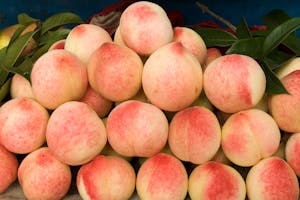In the dynamic landscape of canned food manufacturing, seasonal demand fluctuations present both challenges and opportunities for manufacturers. As consumer preferences shift with the seasons, manufacturers must adapt their production, distribution, and marketing strategies to meet fluctuating demands effectively. In this blog post, we'll explore the insights gleaned from seasoned veterans in the industry, shedding light on best practices, innovative solutions, and the role of mushroom production technology in managing seasonal demand fluctuations.
Understanding Seasonal Demand Dynamics:
Seasonal demand fluctuations are a common occurrence in the food industry, influenced by factors such as weather patterns, holidays, and cultural traditions. Understanding the underlying drivers of seasonal demand is the first step in effectively managing fluctuations and optimizing production efficiency.
For canned food manufacturers, seasonal demand patterns may vary depending on the type of product and target market. For example, demand for canned soups and stews tends to peak during the colder months, while canned fruits and vegetables may experience heightened demand during the summer harvest season.
Key Insights for Managing Seasonal Demand:
- Forecasting and Planning: Accurate forecasting is essential for anticipating seasonal demand fluctuations and aligning production schedules accordingly. By analyzing historical sales data, market trends, and consumer behavior, manufacturers can develop robust forecasting models to guide production planning and inventory management.
- Flexible Production Capacity: Maintaining flexible production capacity allows manufacturers to scale production up or down in response to changing demand levels. Investing in agile production processes, equipment, and workforce management enables manufacturers to adapt quickly to seasonal fluctuations without compromising efficiency or quality.
- Diversification of Product Portfolio: Diversifying the product portfolio helps mitigate the impact of seasonal demand fluctuations by spreading risk across multiple product categories. Manufacturers can offer a range of canned food products tailored to different seasons, preferences, and dietary needs, ensuring continuous demand throughout the year.
- Strategic Marketing and Promotion: Strategic marketing and promotion efforts can help stimulate demand during off-peak seasons and capitalize on seasonal trends. By leveraging digital marketing channels, seasonal promotions, and targeted advertising campaigns, manufacturers can drive consumer engagement and increase product visibility year-round.
- Collaboration with Suppliers and Distributors: Collaborating closely with suppliers and distributors is critical for ensuring timely access to raw materials and efficient distribution of finished products. Establishing strategic partnerships, implementing Just-In-Time (JIT) inventory systems, and optimizing logistics networks enhance supply chain resilience and responsiveness to seasonal demand fluctuations.
Leveraging Mushroom Production Technology:
In managing seasonal demand fluctuations, canned food manufacturers can leverage innovative solutions such as mushroom production technology to enhance production efficiency and product diversity:
- Year-Round Cultivation: Mushroom production technology enables year-round cultivation of high-quality mushrooms in controlled environments, regardless of seasonal variations. By integrating mushrooms into their product portfolio, manufacturers can diversify offerings and mitigate the impact of seasonal demand fluctuations.
- Shorter Growth Cycles: Mushrooms have shorter growth cycles compared to traditional crops, allowing for faster production turnaround and more agile response to changing demand levels. Manufacturers can adjust mushroom cultivation schedules to align with seasonal demand trends, ensuring consistent supply and availability.
- Value-Added Ingredients: Mushrooms offer versatility as value-added ingredients in a variety of canned food products, including soups, sauces, and ready-to-eat meals. Their unique flavor profiles, nutritional benefits, and culinary versatility appeal to a broad range of consumers, driving demand across seasons.
Insights from Industry Leaders:
Industry leaders offer valuable insights gleaned from years of experience in managing seasonal demand fluctuations:
- Adaptability: "Flexibility is key in managing seasonal demand fluctuations. By staying agile and adaptable, we can quickly adjust production schedules, optimize inventory levels, and meet shifting consumer demands."
- Continuous Improvement: "Continuous improvement is essential for staying ahead of the curve. By investing in process optimization, technology upgrades, and workforce training, we can enhance efficiency, reduce costs, and better serve our customers."
- Customer-Centric Approach: "Understanding our customers' needs and preferences is paramount. By listening to feedback, conducting market research, and staying attuned to consumer trends, we can develop products and strategies that resonate with our target audience year-round."
Conclusion:
In the ever-changing landscape of canned food manufacturing, managing seasonal demand fluctuations requires foresight, agility, and innovation. By leveraging insights from industry veterans, adopting best practices, and embracing innovative solutions such as mushroom production technology, manufacturers can navigate seasonal tides with confidence, ensuring consistent supply, satisfied customers, and sustained growth.
As the industry evolves, collaboration, continuous improvement, and a customer-centric approach will be key drivers of success in managing seasonal demand fluctuations effectively. By staying proactive, adaptable, and insights-driven, canned food manufacturers can thrive in a dynamic market environment and seize opportunities for growth, even amidst seasonal ebbs and flows.




采访刊发中国罐头⾏业-01.jpg)

